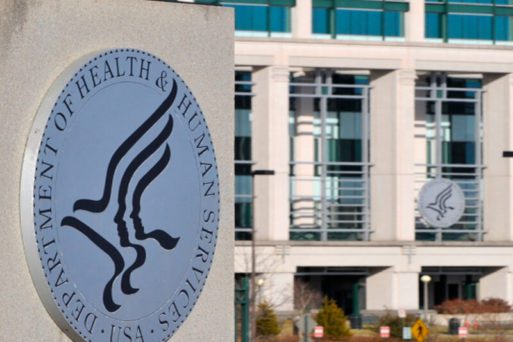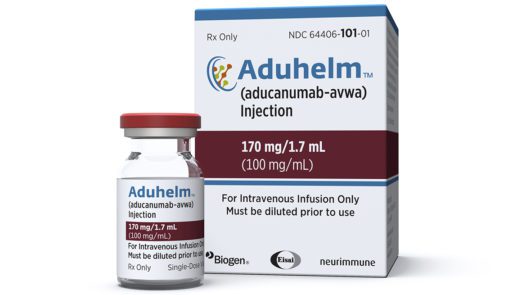
The Center for Medicare and Medicaid Services in Washington, D.C.
In November 2021, The Center for Medicare & Medicaid Services announced a historic increase in Medicare Part B premiums, from $148.50 in 2021 to $170.10 in 2022. The agency justified the 14.5% increase, the largest in the history of the Medicare program, by citing three contributing factors: skyrocketing prescription drug costs, increased healthcare utilization due to the COVID-19 pandemic and the recent FDA approval of the controversial Alzheimer’s drug Aduhelm. It also noted that Congress had limited any increase in Medicare premiums in 2021 due to the economic impact of COVID-19.
Citing a statutory requirement to “maintain a contingency reserve for unanticipated increases in health care spending, particularly certain drug costs,” CMS said in a press release that the rate hike was driven in part by “significant uncertainty regarding the potential for future coverage of clinician-administered Alzheimer’s drugs (i.e., Aduhelm), requiring additional contingency reserves.” (While medicine is usually covered under Medicare Part D, clinician-administered drugs are covered under Part B.) At the time of the announcement, the drug carried a $56,000 annual price tag, not including additional costs associated with intravenous administration and regular MRI scans to assess for potentially fatal side effects. According to Kaiser Family Foundation, about 50% of the Medicare rate hike was to cover projected costs associated with Aduhelm alone.

Aduhelm is administered intravenously by a clinician and is, therefore, covered by Medicare Part B.
Credit: Biogen
But after several months of controversy, which included the resignation of several members of an FDA advisory committee who strongly objected to Aduhelm’s approval and a Congressional investigation into “apparent anomalies” in the FDA’s review process, in December the drug’s manufacturer, Biogen, bowed to pressure and announced it was lowering the price. Citing the need to make the drug more accessible, the company slashed the projected cost of the Aduhelm by 50% to $28,200 per year as of Jan. 1, 2022. The move came shortly ahead of Medicare’s anticipated announcement about whether or not it would pay for Aduhelm at all.
Then, in January, CMS announced it’s long-awaited decision: It will cover the cost of Aduhelm, but only for patients enrolled in clinical trials approved by CMS or supported by the National Institutes of Health. The decision, which won’t be finalized until April, will allow Biogen time to gather more data about Aduhelm’s clinical efficacy and safety profile, but will greatly limit the number of persons who have access to the drug. Called “highly unusual” by some experts, the decision reflects the agency’s concerns about Aduhelm’s unproven ability to help Alzheimer’s patients alongside its demonstrated ability to cause serious harm. According to Dr. Lee Fleisher, the chief medical officer and director of the Center for Clinical Standards for CMS, the decision was based on strong evidence that “while there may be the potential for promise with this treatment, there’s also the potential for serious harm to patients. This harm may include headaches, dizziness, falls, and brain bleeds.”
CMS Ordered to Reassess
What all this means financially for Medicare beneficiaries remains unclear. In the wake of Biogen’s decision to lower Aduhelm’s price, in January U.S. Health and Human Services Secretary Xavier Becerra instructed CMS to reassess the Medicare rate hike it approved last year. “With the 50% price drop of Aduhelm on Jan. 1,” Bacerra said, “there is a compelling basis for CMS to reexamine the previous recommendation.” But CMS has yet to respond, stating only that it is “reviewing the secretary’s statement to determine next steps.”

In the U.S., millions of elderly Social Security recipients are financially strapped.
Credit: The Guardian
Such a retroactive rate adjustment would be “unprecedented but not unwarranted,” according to Juliette Cubanski, deputy director of the program on Medicare policy at the Kaiser Family Foundation.“If it turns out that spending on this drug is going to be significantly less than what Medicare’s actuaries expected … it would be reasonable to make an adjustment to the Part B premium,” Cubanski said. And while the adjustment would necessarily be small, it would provide a degree of relief to the millions of Medicare beneficiaries who –despite a Social Security cost of living adjustment of 5.9% in January — are still struggling to make ends meet amid historic inflation and ever-increasing healthcare costs.

 CMS to Reconsider Historic Medicare Rate Hike
CMS to Reconsider Historic Medicare Rate Hike


 “Songbird” by Fleetwood Mac
“Songbird” by Fleetwood Mac

 How to Comfort A Dying Loved One
How to Comfort A Dying Loved One














